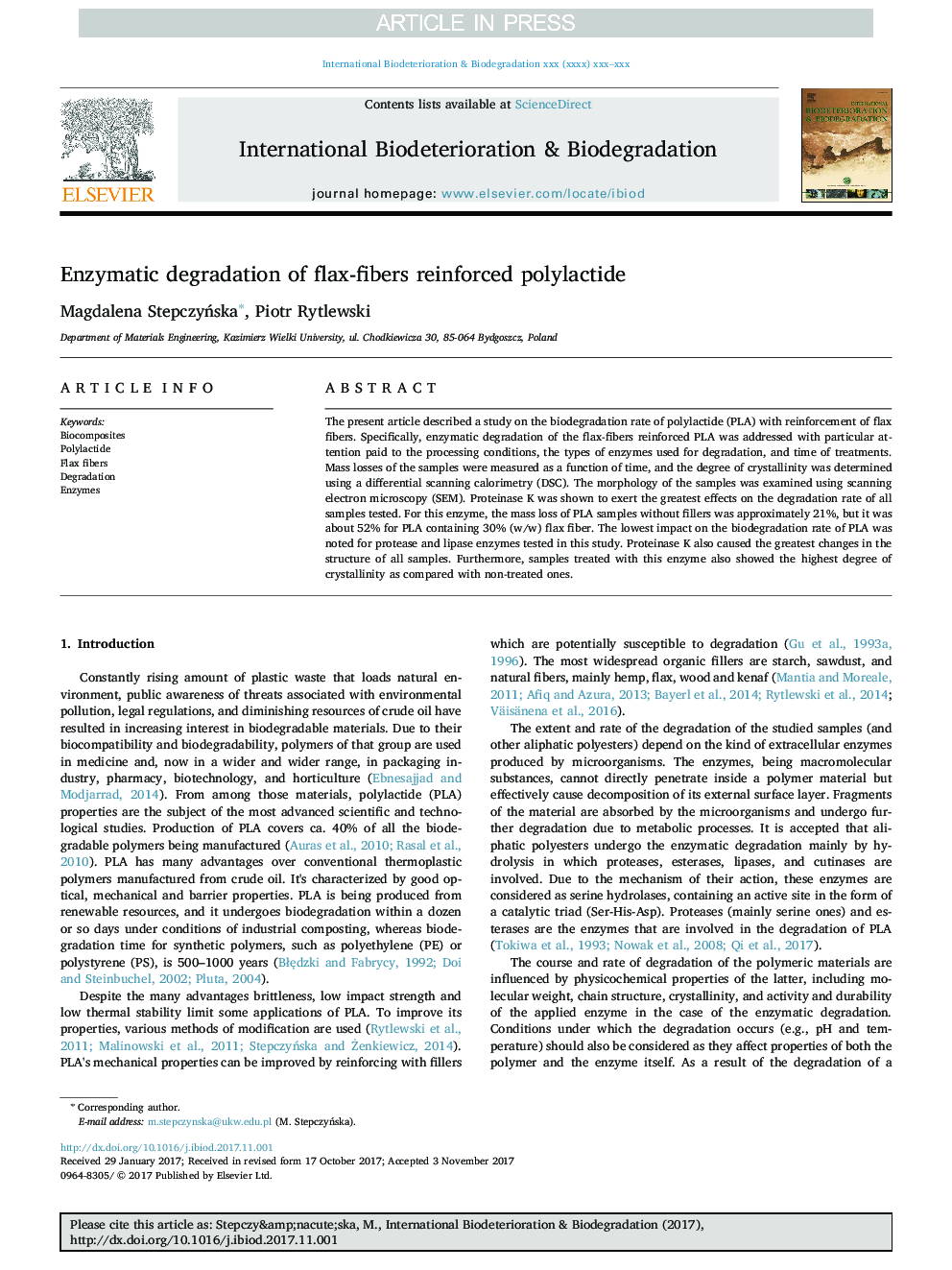| Article ID | Journal | Published Year | Pages | File Type |
|---|---|---|---|---|
| 8844004 | International Biodeterioration & Biodegradation | 2018 | 7 Pages |
Abstract
The present article described a study on the biodegradation rate of polylactide (PLA) with reinforcement of flax fibers. Specifically, enzymatic degradation of the flax-fibers reinforced PLA was addressed with particular attention paid to the processing conditions, the types of enzymes used for degradation, and time of treatments. Mass losses of the samples were measured as a function of time, and the degree of crystallinity was determined using a differential scanning calorimetry (DSC). The morphology of the samples was examined using scanning electron microscopy (SEM). Proteinase K was shown to exert the greatest effects on the degradation rate of all samples tested. For this enzyme, the mass loss of PLA samples without fillers was approximately 21%, but it was about 52% for PLA containing 30% (w/w) flax fiber. The lowest impact on the biodegradation rate of PLA was noted for protease and lipase enzymes tested in this study. Proteinase K also caused the greatest changes in the structure of all samples. Furthermore, samples treated with this enzyme also showed the highest degree of crystallinity as compared with non-treated ones.
Related Topics
Life Sciences
Environmental Science
Environmental Science (General)
Authors
Magdalena StepczyÅska, Piotr Rytlewski,
